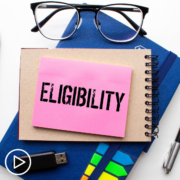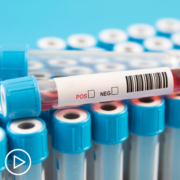Bispecific Antibodies for Myeloma | Patient Eligibility Requirements
Bispecific Antibodies for Myeloma | Patient Eligibility Requirements from Patient Empowerment Network on Vimeo.
What are the myeloma patient eligibility requirements for bispecific antibodies? Nurse practitioner Alexandra Distaso from Dana-Farber Cancer Institute discusses patient types that work well with bispecific antibody therapy, patient eligibility requirements, and updates about research developments with bispecifics.
Alexandra Distaso, MSN, FNP-BC is on the Multiple Myeloma Nursing Team at Dana-Farber Cancer Institute.
See More from The Care Partner Toolkit: Bispecific Antibodies
Related Resources:

Bispecific Antibody Therapy | What is the Treatment Duration and Response? |

|

|
Transcript:
Katherine:
Well, who is this treatment approach approved for, and what are the eligibility requirements?
Alexandra:
So, one thing that’s great about bispecific antibodies is that there is not a lot of restriction on who we can use these therapies for. So, these are great for patients who are a little bit more frail or maybe aren’t up for something like a CAR T, or whose disease is a little further along, and they don’t have time to wait for something like CAR T, which requires collecting of cells and manufacturing. What’s great about these medications is that they’re off the shelf. They’re ready to go kind of when you need them. There are restrictions in terms of how many lines of therapy that you need to have had before you can currently get bispecifics.
So, right now, you need to have four prior lines of therapy, and that needs to include an immunomodulatory agent. So, something like a lenalidomide (Revlimid) or a pomalidomide (Pomalyst), a proteasome inhibitor like bortezomib (Velcade), and a monoclonal antibody like daratumumab (Darzalex) before you’re eligible for these.
Katherine:
Have there been any recent bispecific antibody research developments that patients should know about?
Alexandra:
So, there are at least three bispecific antibodies that are hopefully coming into approval in the next several months to year, cevostamab being one of them. It’s a very exciting time for myeloma with all of these medications being approved. Teclistamab (Tecvayli), elranatamab (Elrexfio), and talquetamab (Talvey) in the last year. There’s still a lot of research on bispecific antibodies, especially trying to bring them all outpatient instead of just having inpatient treatment, and in addition, looking at them with other medications, such as teclistamab with daratumumab.










